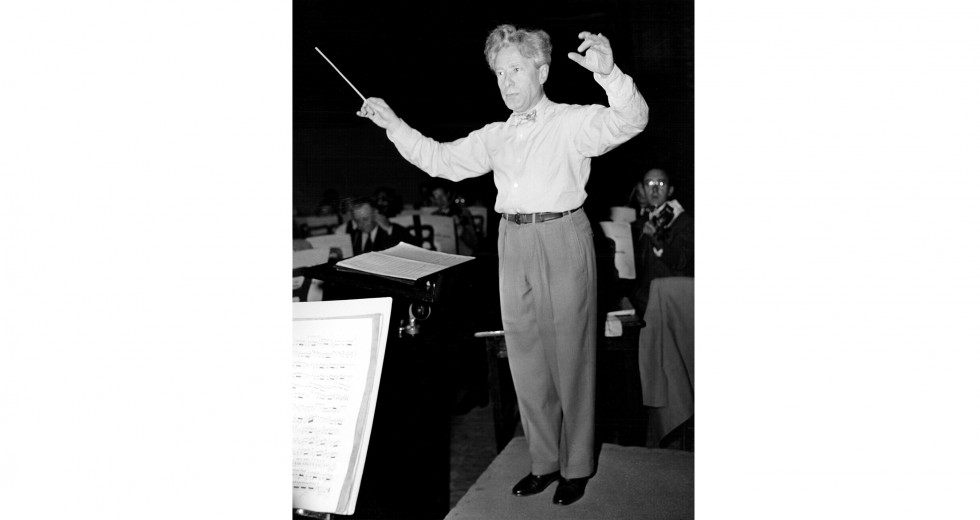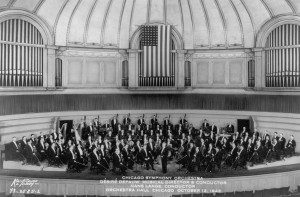
On February 11, 1943, Edward L. Ryerson, president of the Orchestral Association, announced that Désiré Defauw would become the Chicago Symphony Orchestra’s third music director, beginning with the 1943–44 season. The Belgian conductor had made his debut with the Orchestra only a month before, leading one program of subscription concerts on January 7 and 8 (Wagner’s Overture to The Flying Dutchman, Debussy’s Clouds and Festivals from Nocturnes, Franck’s Le chasseur maudit, and Beethoven’s Seventh Symphony) and a Popular Concert on January 9 (Weber’s Overture to Euryanthe, Sibelius’s The Swan of Tuonela from Four Legends of the Kalevala, selections from Berlioz’s The Damnation of Faust, and Tchaikovsky’s Sixth Symphony).
Defauw’s years with the Orchestra coincided with the time when American involvement in World War II was at its peak, an unsettled era when musicians were off to war (making room for more women to join orchestras) and servicemen were able to hear concerts for free when seats were unsold or empty. Patriotism was in high gear and the Stars and Stripes became a permanent fixture over the stage of Orchestra Hall. For the first concerts of the fifty-fifth season on October 4 and 5, 1945—the first downtown concerts following the end of the war—Defauw led the Orchestra in the national anthems of the Allied nations: China, France, the Soviet Union, the United Kingdom, and the United States.
Serving for four seasons through 1946–47, Defauw introduced Chicago audiences to the works of several contemporary composers, including Barber, Bloch, Carpenter, Chadwick, Copland, Elgar, Goldmark, Milhaud, Sibelius, Walton, and Warlock. For RCA, Defauw and the Orchestra recorded a wide variety of repertoire, including works by Borodin, Franck, Grétry, Handel, Prokofiev, Respighi, Smetana, and Stravinsky, along with Mendelssohn’s Violin Concerto with Mischa Elman, Strauss’s Burleske and Weber’s Konzertstück with Claudio Arrau, and Tchaikovsky’s Violin Concerto with Erica Morini.
This article also appears here.
